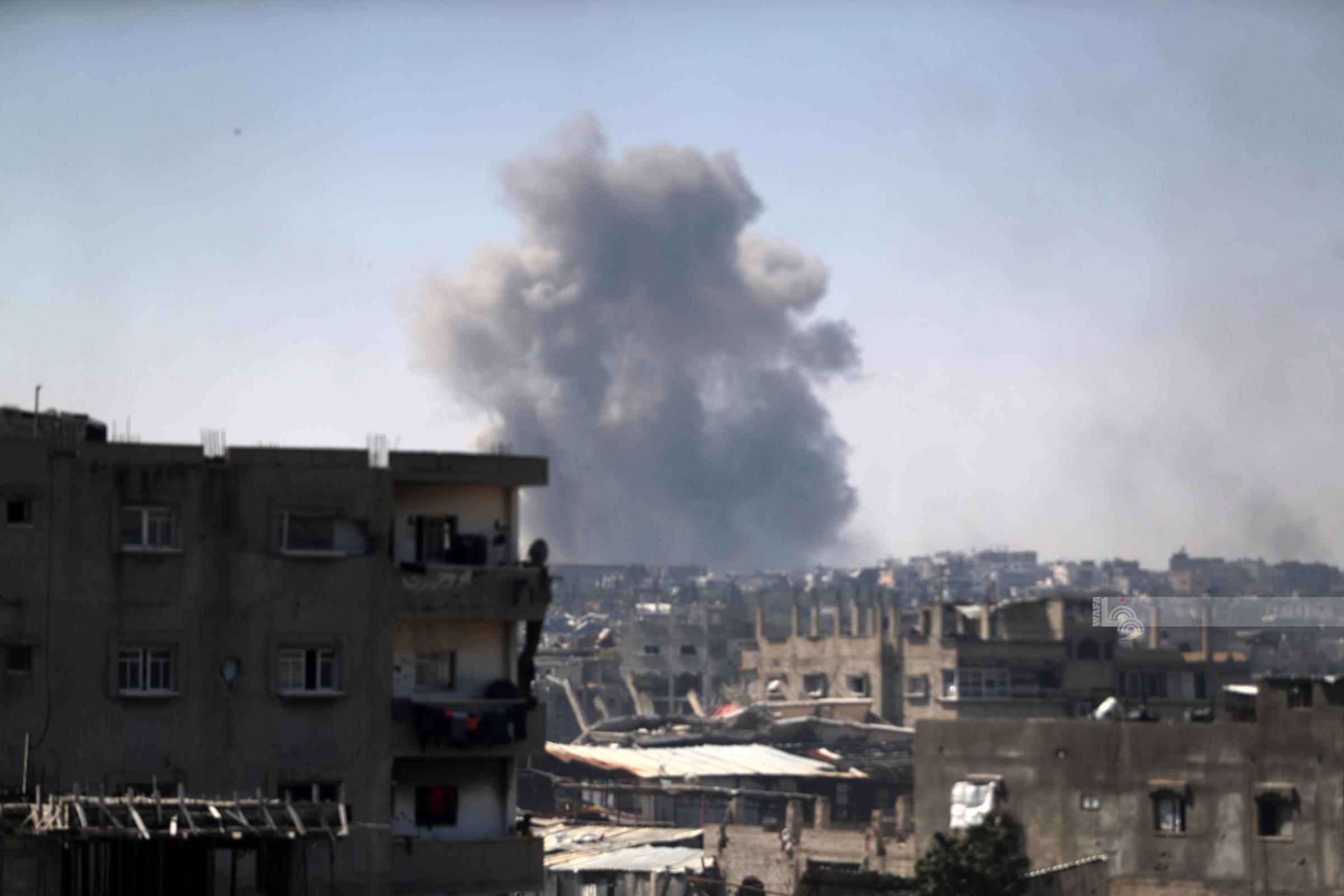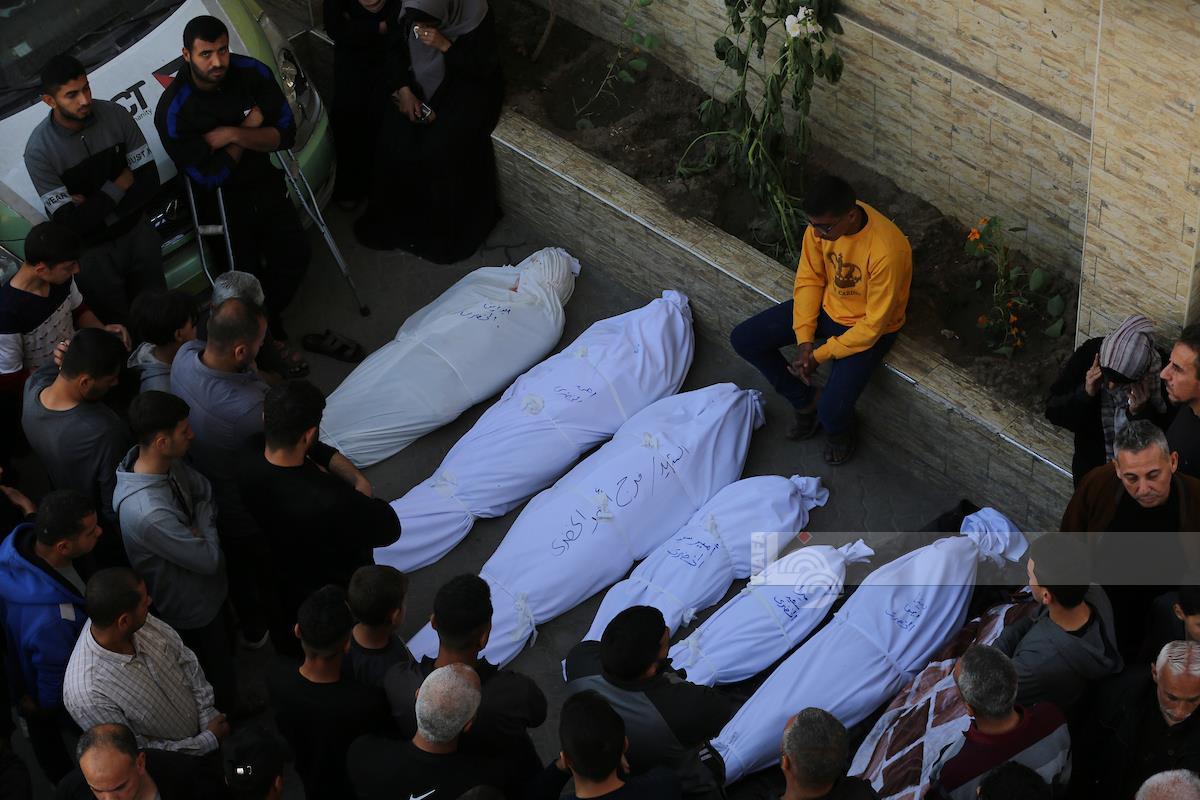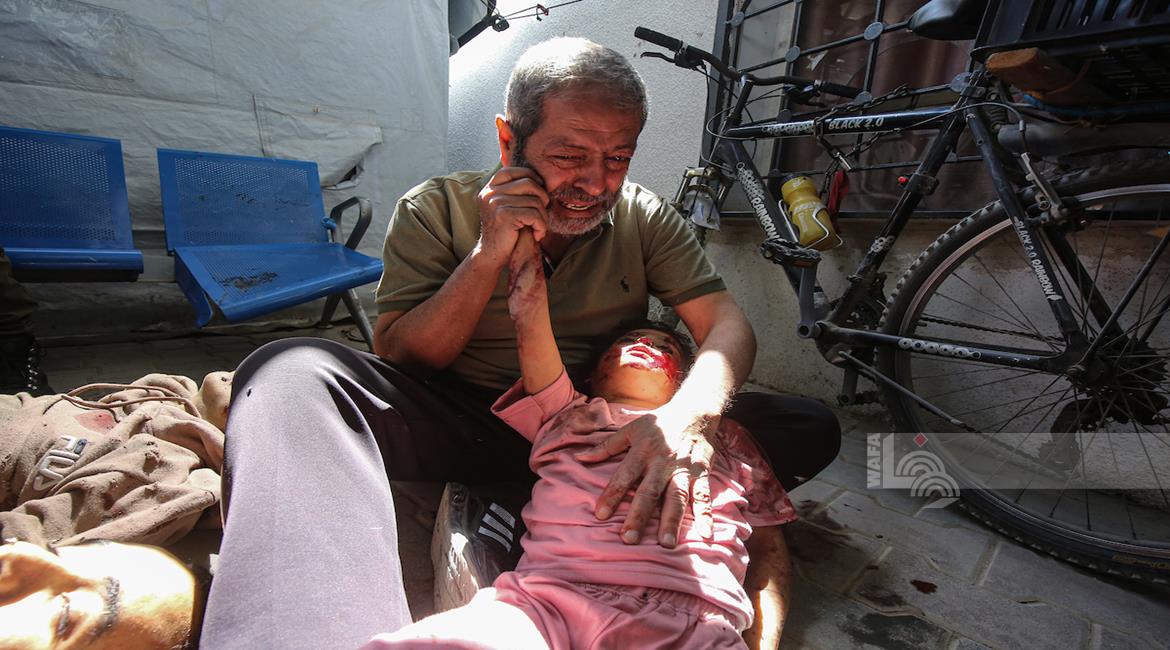Poll: 82.7% of Respondents Pessimistic Towards General Palestinian Conditions at this Stage
NABLUS, May 21, 2007, (WAFA)- An independent fresh public poll revealed on Monday that 82.7% of respondents are pessimistic towards the general Palestinian conditions at this stage.
The poll, conducted by the Center for Opinion Polls and Survey Studies (COPSS) at An-Najah National University, during the period from May 17-19, 2007, undertakes the current political realities especially the Mecca Accord, the formation of the Unity Government, the priorities of the Palestinian people and what is expected of the newly formed government, in addition to the performance of some Palestinian institutions and other issues.
In a statement, COPSS said that the poll showed that 92% of respondents do not feel safe neither for themselves nor for their families and properties under the present circumstances. 79.2% of respondents said that their economic situation under the current circumstances is deteriorating. 82.2% of respondents said that the local security conditions deteriorated.
As for the priorities of the future Palestinian government respondents saw the following:
58.6% were in favor of imposing order on the local security conditions 10.7% were in favor of creating job opportunities.
16.1% were in favor of solving the problem of salaries.
90.9% of respondents assessed the current Palestinian conditions in the Palestinian territories as "bad", 8.2% assessed them as "good".
6.9% of respondents believed that the Mecca Accord signed between Fateh and Hamas will hold for a long period of time.
19.1% of respondents believed that the Unity Government will continue to perform its duties during the coming period, 68.6% believed it will collapse.
35.3% of respondents believed that Hamas is really concerned with the success of the Palestinian Unity Government.
37% of respondents believed that Fateh is really concerned with the success of the Palestinian Unity Government.
24% of respondents believed that the Unity Government succeeded, if partially, to ease up the political sanctions imposed on the Palestinian Authority, 70.9% believed that it failed.
21.4% of respondents believed that the Unity Government succeeded, if partially, to uplift the financial sanctions imposed on the Palestinian Authority, 74.5% believed that it failed.
18.6% of respondents believed that the Unity Government was able to implement the security plan that it declared to put an end to security mayhem, 73.5% believed it was not.
49.2% of respondents said that they are in favor of continuing the strike of the employees of the public sector since the present government is unable to secure their salaries.
26.6 % of respondents believed that the current government is capable of securing the salaries of the employees within the near future.
28.7% of respondents believed that the Unity Government is capable of solving the problem of salaries.
71.4% of respondents asked the current government to resign if it fails to improve the security and financial conditions.
If the current government fails to achieve its mission, 48.1% of respondents saw that the alternative is conducting new elections, 24.3% saw that it is dissolving the Palestinian Authority, 22.2% saw that it is the formation of a new government.
46% of respondents supported dissolving the Palestinian Authority while 47.1% rejected that.
37.9% of respondents believed that there is a possibility for reaching an agreement between the Palestinian factions to form a new government if the current government fails, 51.4% saw the contrary.
34.6% of respondents believed that the Unity Government will survive until the end of this year under the current circumstances, 51.2% believed the contrary.
48.2% of respondents believed that the resignation of the Minister of the Interior Affairs is one step towards the collapse of the National Unity Government.
59% of respondents believed that the recent confrontations practically aborted the Mecca Accord.
19% of respondents believed that the National Unity Government is currently capable of controlling the conditions in the Gaza Strip, 75.4% believed the contrary.
59.3% of respondents believed that the resignation of the Minister of Interior Affairs will create a new crisis between Fateh and Hamas over the position of a new minister.
24.8% of respondents believed that the National Unity Government came as a result of the desire of both Fateh and Hamas to share authority, 27% believed that it came as a result of the pressure exerted by the Palestinian Public, 18.7% believed that it came as a result of pressure exerted by Arab countries.
49.6% of respondents supported the Arab Initiative for Peace as a basis for a settlement in the Middle East.
45.3% of respondents supported the US Middle East Plan which proposes easing up the movements of Palestinian people in return for a cease in firing rockets from the Gaza Strip, 48.3% rejected the US plan.
43% of respondents rejected firing rockets from the Gaza Strip against Israel.
40.4% of respondents said that firing rockets from the Gaza Strip against Israel hurts the Palestinian cause, 32.5% said it serves it.
62.3% of respondents supported a call on the Palestinian factions by the Palestinian Authority to return to a truce with Israel, 31.8% rejected that.
Respondents assessed the performance of the National Unity Government in the following domains during the two months of its duration in power as follows:
Respondents assessed the performance of the following institutions as "good" with the following percentages:
52.2% of respondents supported the idea that negotiation should only be the responsibility of the PLO, 42.1% opposed that. 76.2% of respondents supported the reformation of the PLO so that it would include all Palestinian factions, including those which are not part of it, 18.1% opposed that.
33.1% of respondents will vote for a Fateh candidate if a new Presidential elections are conducted, 16.8% will vote for a Hamas candidate.
32.2% of respondents will vote for a Fateh bloc if a new PLC elections are conducted 17.4% will vote for a Hamas bloc.
The sample included 1361 persons whose age group is 18 and above and who have the right to vote. The enclosed questionnaire was distributed on 861 persons from the West Bank and 500 persons from the Gaza Strip. The sample was drawn randomly and the margin of error is about ±3%, still 2.7% of the members of the sample refused to answer the questionnaire.
M.H.(13:10 P)910:10 GMT)












